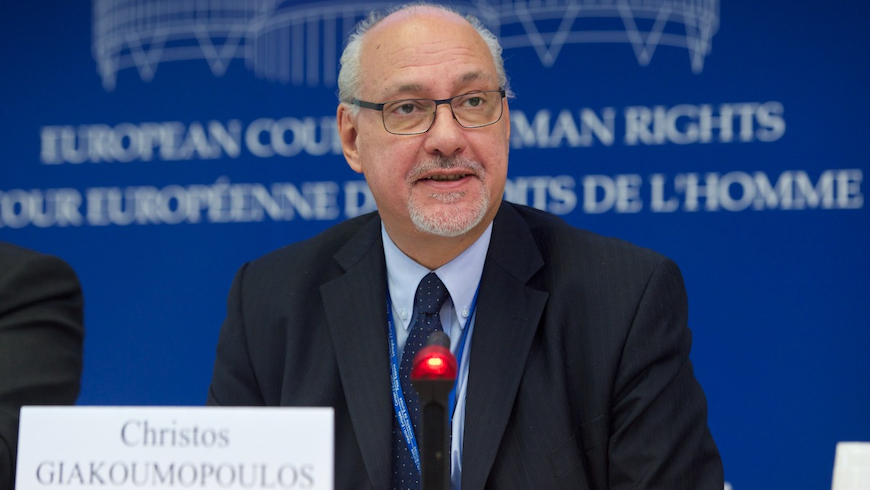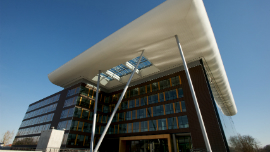Concluding remarks by Mr Philippe Boillat
International Conference "Human Rights and Biomedicine: Ethical and legal aspects of organ donation"
Moscow, 26 April 2016
Dear Vice-Minister,
Ladies and Gentleman,
This conference is coming to its end and I wish to thank the Ministry of Health, in particular Ms Gabassova assisted by Ms Anastasia Koylyu for their work and very constructive and fruitful cooperation in the organisation of this event.
I wish to share with you some final observations on what was together a celebration, an achievement and a starting point.
A celebration
A celebration of what was a highly important milestone in the European history, i.e. the accession of Russia to the Council of Europe, anchoring the pan European dimension of the Council of Europe and creating a common legal space for the whole continent.
The active role taken by Russia over these 20 years in sponsoring and promoting legal instruments has been duly recalled today. But also illustrated by its action in the biomedical field where Russian contribution was and remains of great relevance and importance.
An achievement
The protection of Human Rights in the biomedical field was at the centre of this conference. The Council of Europe has been pursuing this work since early 80’s in bioethics when it launched its first pioneering initiatives in this area.
Bioethical issues arise in numerous fields and the related rights are often referred to as a new generation of human rights.
This is a field where ethics, law and science, in particular, are closely related. This was perfectly illustrated by the case of organ donation and transplantation.
The situations encountered are not only sensitive but often very complex. Human lives are at stake. Related human rights challenges need to be addressed for the benefit and respect of human beings; we also need to build trust in the system in place.
In this context, we have seen the central role of the free and informed consent of the person from whom the organ is to be removed, including after his or her death. Where presumed consent regime is in place for organ removal on deceased persons, all necessary measures have to be taken to ascertain that this person has not objected when alive. This may be done by approaching relatives to know whether the person concerned has expressed any objection when alive. It is also important to keep up to date a centralised register to record such objections. This centralised register should be properly consulted by medical professionals.
In my opening address, I referred to the necessary synergy between protection of human rights and promotion of medical and scientific progress. The presentations and debates today confirmed the importance of such synergies to be created.
The Oviedo Convention and its additional protocol aim at providing the necessary legal framework for the protection of fundamental rights in the field of organ donation and transplantation.
Promoting organ donation and transplantation is a necessity. But protecting fundamental rights of donors and recipients is a legal requirement and the only way to fight organ trafficking.
The conference also illustrated the relevance of those issues for both legal and health professionals. They need to better understand the implications of biomedical practices in their respective areas of competence and the importance of full respect of the legal principles to ensure appropriate safeguards for the sake of better protection.
This conference made it possible not only to reaffirm the fundamental principles and values that should guide our actions, but also to raise awareness on the multidisciplinary cooperation required to ensure their implementation in practice.
A starting point
Cooperation and continuous dialogue are indeed essential to ensure the protection of human rights. Bioethical issues are societal issues which need to be debated by all those concerned. That is all citizens and not only legal or medical specialists.
Experience and expertise have to be shared - not only within a country but also between different countries. Cooperation activities among the Council of Europe Member States have already made it possible to build up a substantial set of instruments and tools to facilitate the implementation of established standards at international level.
In this context, education and training is essential. Professional training on bioethics requires an innovative multidisciplinary approach; training activities should be directed to both for legal and health professionals. A new course on bioethics is planned to be prepared in the context of the pan-European HELP programme of the Council of Europe. We are particularly pleased to see strong support expressed by the Russian authorities for this project and the interest by various academic institutions of Russia for devising and implementing such a new course. The participation of Russian experts in this project would be an asset.
Stronger international cooperation is required for effective fight against trafficking in human organs. Russia’s commitment in this field has already been expressed through the recent signature of the Convention against trafficking in human organs. We know that ratification is forthcoming.
The organisation of this conference also confirms the interest and importance placed by the Russian Federation in the general protection of human rights in the biomedical field. We are looking forward to the further development of cooperation with the relevant Russian authorities in this field; the Conference may thus be seen as a starting point for new joint activities.
We will celebrate next year the 20th anniversary of the Convention on Human Rights and Biomedicine and we would welcomea new State Party joining this Convention in the near future.
I thank all the speakers, moderators and participants, without forgetting the interpreters, for this intense but very fruitful day.









